How the royals saved Westminster Abbey from financial disaster
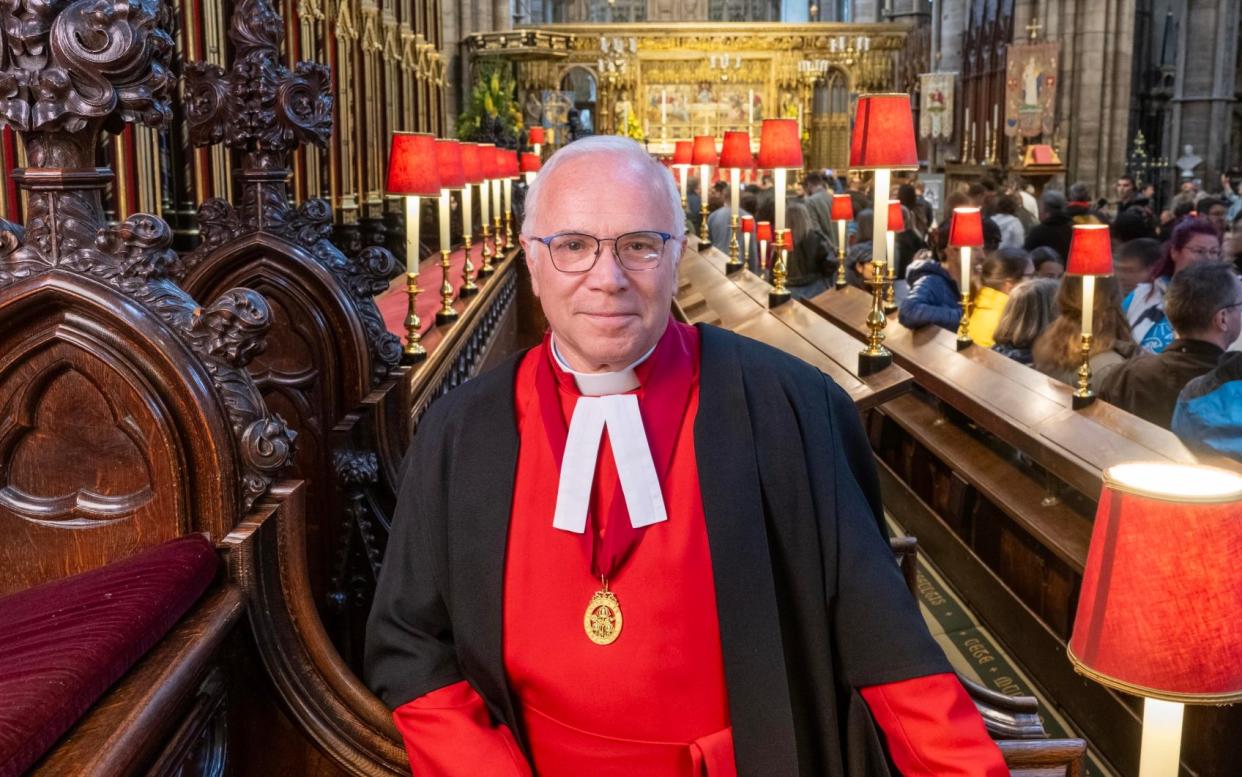
This time last year, Coronation Day was just beginning for the Dean of Westminster. At 7am, David Hoyle made his way to the most sacred place in Westminster Abbey – the shrine of Edward the Confessor – and there, with the Crown Jeweller and the Precentor of the Abbey, began a special ritual. The oil used to anoint King Charles III would be poured from a flask – already transported from Jerusalem – to the Ampulla, a gold, dove-shaped vessel first made for Charles II’s coronation in 1661. After that it would be taken to the High Altar, ready for the Coronation service four hours later.
“The oil is extraordinarily fragrant, unlike anything else I’d ever smelt,” Hoyle recalls. “It was a complex mix of ingredients; rich, heady, deeply aromatic. I was careful not to spill it, yet the fragrance stayed on my fingers and I could smell it for the rest of the day.”
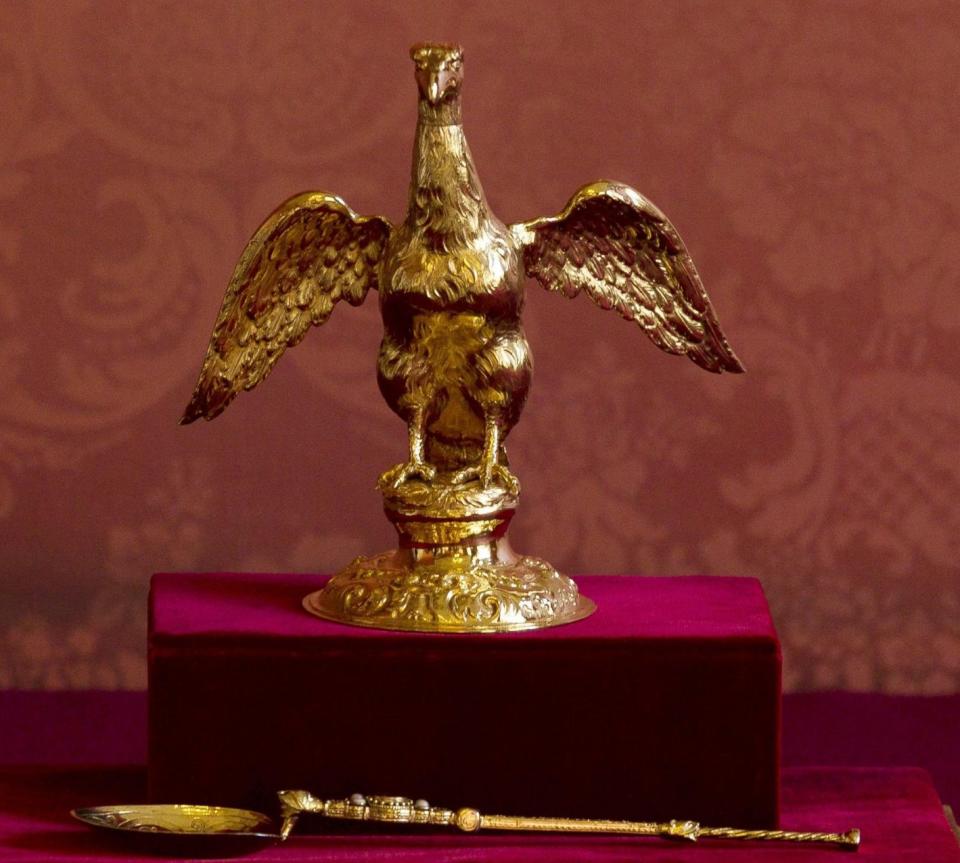
It’s a nice detail in an otherwise difficult time for the Abbey. Closed to the public during lockdown, visitor income had fallen through the floor and the Abbey was in deep financial trouble. “We didn’t shut for the Black Death and we stayed open for the Blitz apart from a brief period when the Abbey was hit. But we closed for Covid,” Hoyle says.
Even when the lockdowns were finally over, the Dean was cautious, predicting in 2022 that visitors would only return to pre-Covid levels in 2025. But he was proved quite wrong. Thanks to Elizabeth II’s state funeral and the Coronation a year ago, both watched on TV by billions around the world, the Abbey got the vital boost it needed. Suddenly visitors were desperate to see the Abbey – often called the parish church of the nation and the Commonwealth – where these royal occasions happened.
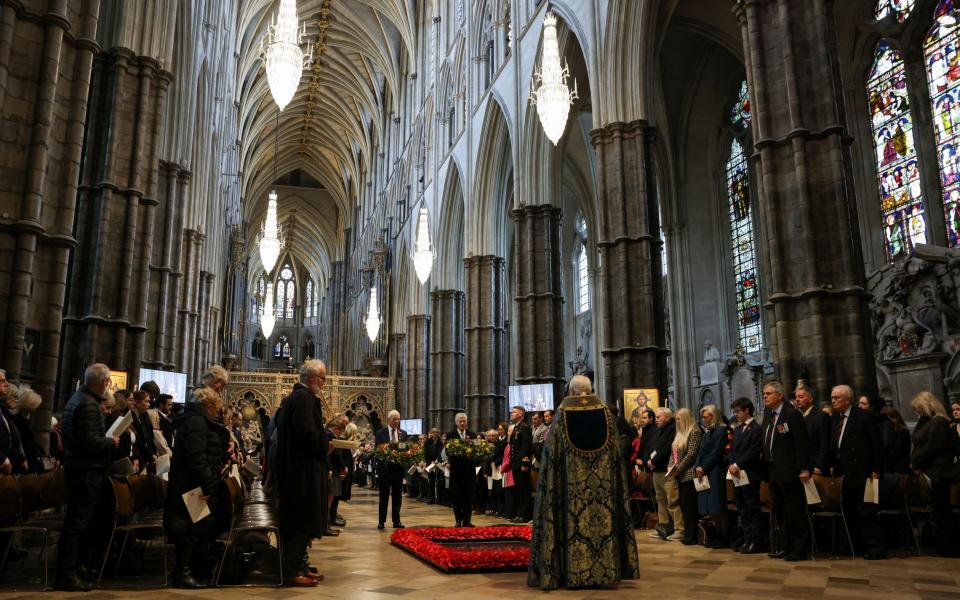
“The two major royal services made a very significant difference to us,” says Hoyle. “Before Covid we had 1.3 million visitors and last year we had £1.35 million. So we got there much quicker than we ever imagined. Lots of visitors mention the Coronation and ask about it.”
When Hoyle, 66, was appointed Dean of Westminster five years ago, he was warned that the Queen’s funeral and the next coronation might be on his watch. “But it doesn’t sink in. It is almost impossible to imagine your way into that”, he says.
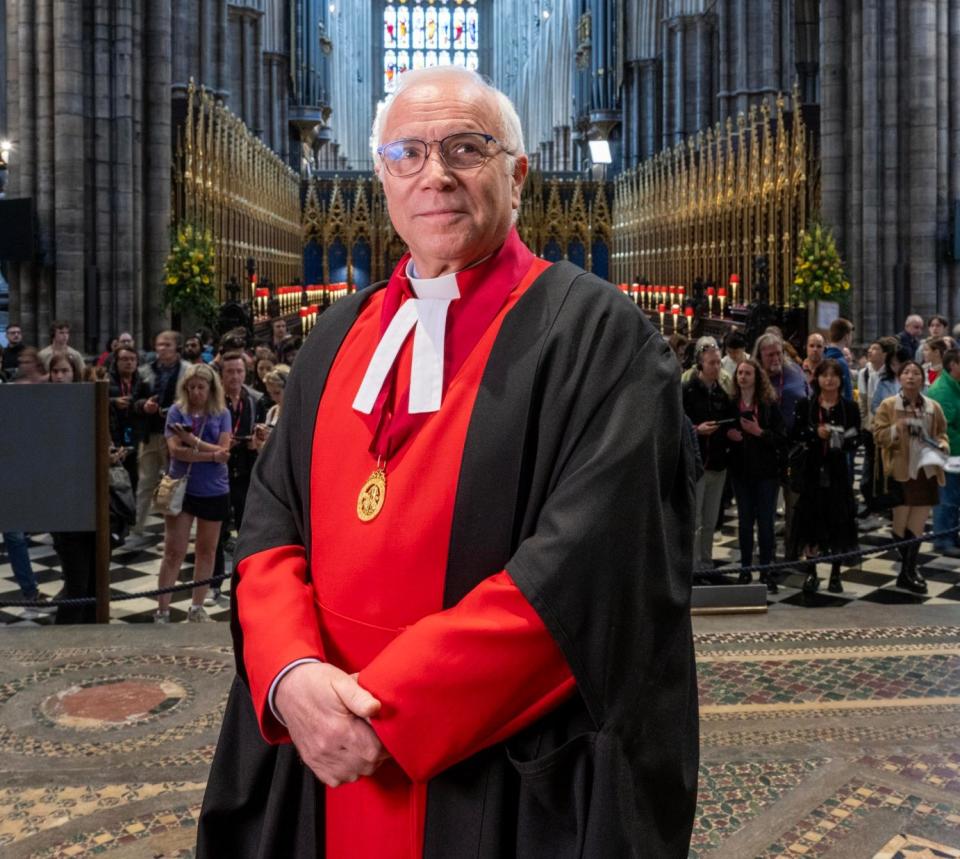
The Abbey had just 10 days to prepare for the Queen’s funeral in September 2022 and seven months for the King’s Coronation. But despite that extra time, he found the Coronation far more difficult.
“Her Majesty was our monarch. Yet in the funeral service we described her as our sister. We were using the same funeral rites that you would use in a village church – in that sense it was familiar – so she was both one of us and our Queen.”
There had also been a detailed plan – famously called Operation London Bridge – for the Queen’s funeral, but there was very little organised in advance for the King’s Coronation – and it had to be that way, says Hoyle.
“Coronations are historic and timeless. So many people are fixated on it as an ancient ceremony but actually it is a snapshot of the moment,” he explains. “So a coronation does have to speak of what kind of a society we think we are. They have to adapt.”
And last year’s Coronation did. Different Christian denominations and other faiths were involved, and a greater number of people from charities linked to the Royal family, as well as fewer aristocrats. The “homage of the people”, whereby the general public is invited to swear allegiance to the monarch, was drastically cut. A dozen new pieces of specially commissioned music were played alongside traditional pieces. But the heart of the service – the King’s oaths, the anointing of the King and Queen, the crowning and the eucharist service – all remained.
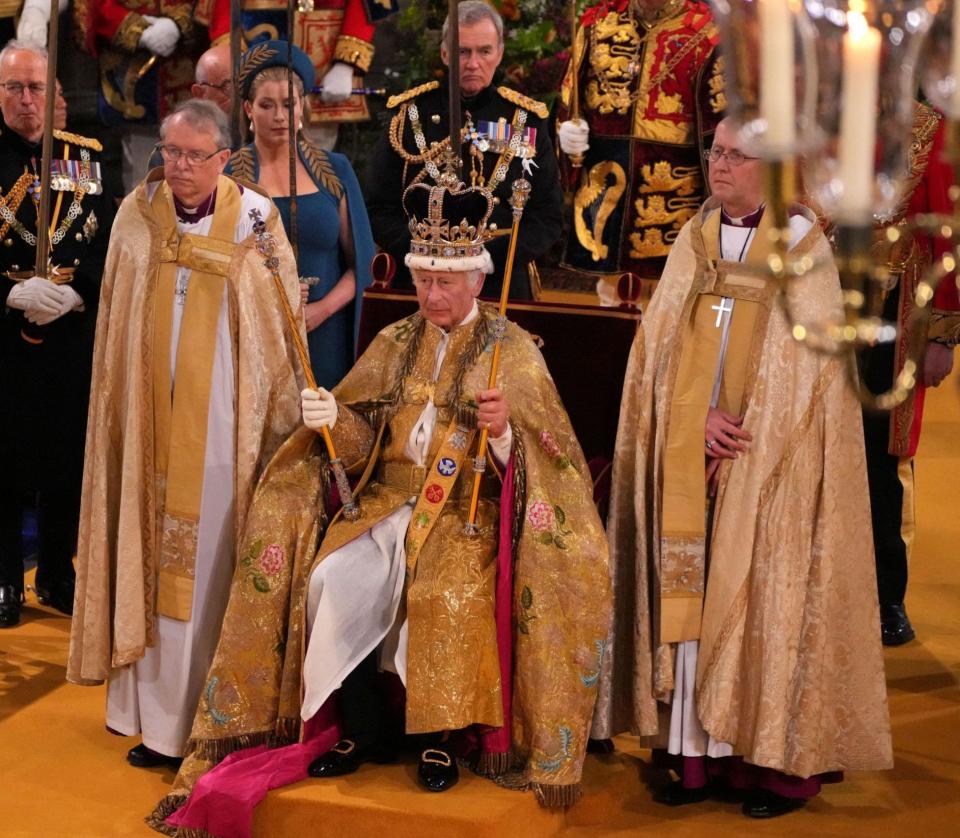
There were several rehearsals with stand-ins for the King and Queen and also for the Crown Jewels. Hoyle recalls walking towards the altar two days before the Coronation for another rehearsal and realising that the Abbey’s replica crowns were no longer being used.
“There was absolutely no mistaking the fact that we had the real Crown Jewels there. The altar was suddenly ablaze with light.”
While the Archbishop of Canterbury always presides at a Coronation, the Dean has to ensure that everything knits together to make the service work. He has to pass every piece of coronation regalia to the right person at the right time, such as the sceptre and orb, as well as more obscure items such as spurs and armills.
The day was “the absolute privilege of my life”, says Hoyle. But it was so complicated, he says that he can hardly bear to watch it. The burden on him, though, he points out, was nothing in comparison to what the King had to do.
“If you want a parable about how costly monarchy might be to the individual I think the Coronation spells it out for you. We ask a huge amount of the King and we saw it acted out that day, as we handed him things, took things away, asked him to move from place to place.”
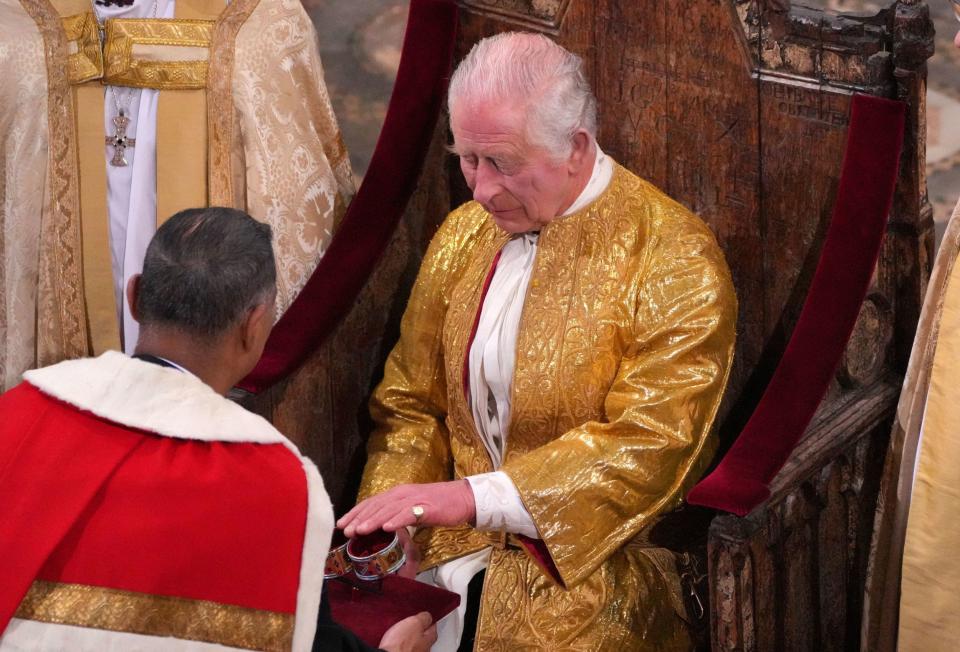
Hoyle, though, had been a Dean before. A former Dean of Magdalene College, Cambridge and canon of Gloucester Cathedral, he arrived at Westminster in 2019 after spending nine years as Dean of Bristol.
“As I’d been a dean before, I arrived thinking: ‘I’ve a rough sense of how this works,” he recalls. “After two days I thought: I haven’t a clue – the pace of the Abbey, the scale, was completely different. So I spent the first few months with my eyes out on stalks. And then came Covid.”
He describes having to shut the Abbey doors as “heartbreaking” and says that sometimes he was tearful. The situation was made all the more difficult because he had to make some staff redundant – “and they weren’t just working here; they loved the place”.
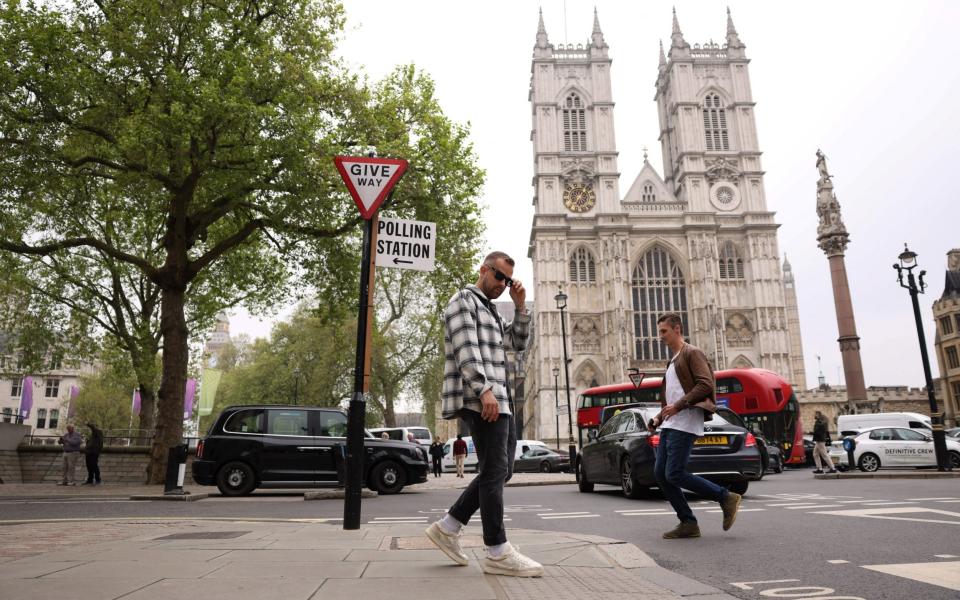
He also had to endure the pandemic alone, as his wife Janet had not yet moved to London and was stuck in Bristol.
He and the five other priests resident at the Abbey kept morning and evening prayer going but nobody else could enter the church. His account of that time suggests that, with the congregations and the tourists gone, life was sucked out of the Abbey.
Then one day, he says, he regained his sense of perspective. “It suddenly dawned on me that this building has stood for 1,000 years, it endured the Black Death, the Reformation and a civil war. Even this pandemic does not ultimately threaten this history.”
Now looking to the future, he has plenty of plans – plans which can happen because visitors are back. With them comes income: a full-price visitor ticket is £29. There will be lots more digital content about the Abbey and a £13 million-appeal to restore the Sacristy, a mediaeval chamber where the priest prepares for the service.
But the project that really highlights what good health the Abbey’s finances is its £500,000 donation to The Passage, a homeless charity which among other projects, provides emergency accommodation for young people. Based in nearby Victoria, it was founded by Cardinal Basil Hume and was a favourite charity of Diana, the late Princess of Wales.
No doubt The Passage’s royal patron, the Prince of Wales, will be delighted that the church where one day he too will be crowned is committing so powerfully to the cause.


